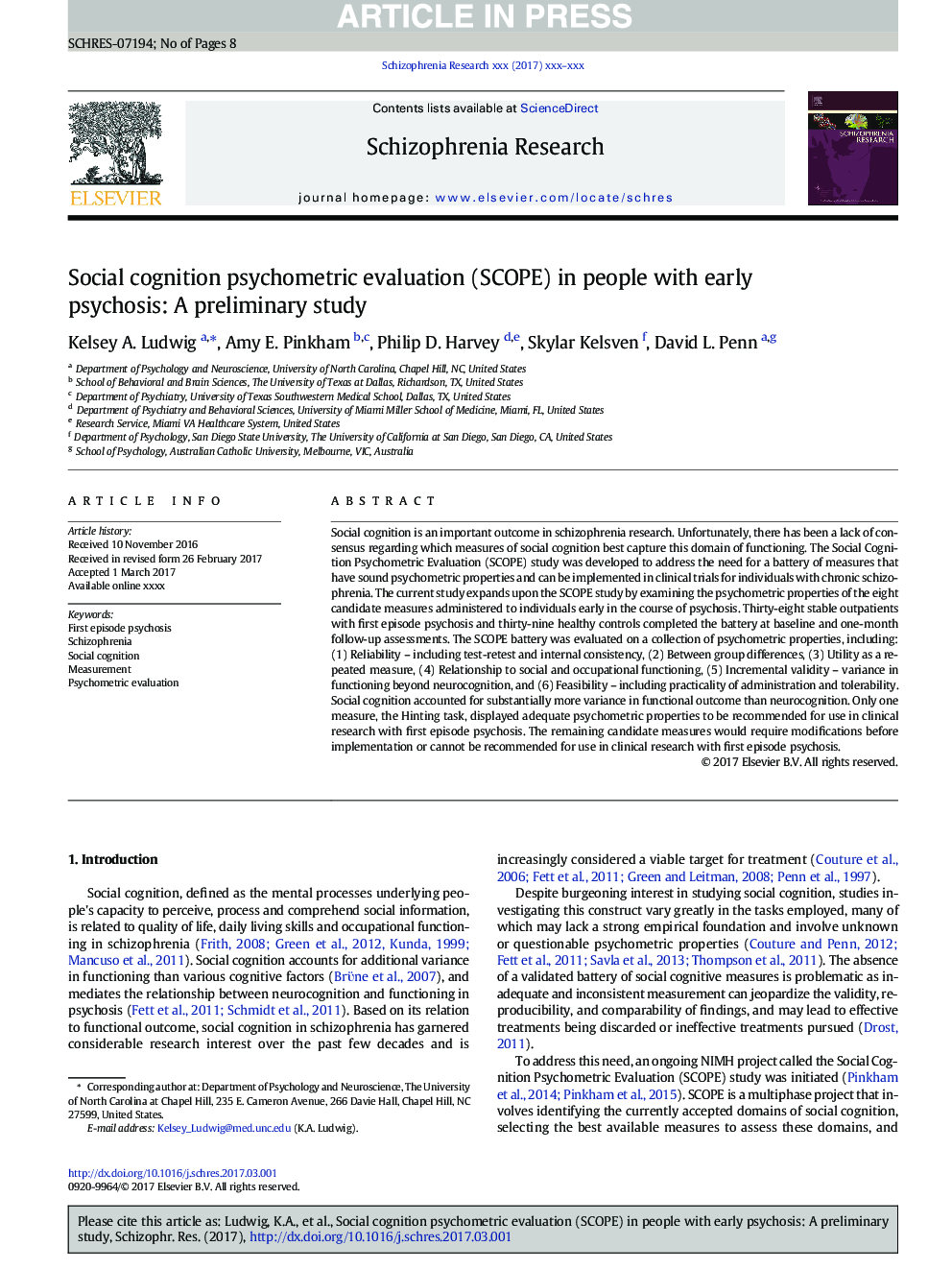| Article ID | Journal | Published Year | Pages | File Type |
|---|---|---|---|---|
| 6822496 | Schizophrenia Research | 2017 | 8 Pages |
Abstract
Social cognition is an important outcome in schizophrenia research. Unfortunately, there has been a lack of consensus regarding which measures of social cognition best capture this domain of functioning. The Social Cognition Psychometric Evaluation (SCOPE) study was developed to address the need for a battery of measures that have sound psychometric properties and can be implemented in clinical trials for individuals with chronic schizophrenia. The current study expands upon the SCOPE study by examining the psychometric properties of the eight candidate measures administered to individuals early in the course of psychosis. Thirty-eight stable outpatients with first episode psychosis and thirty-nine healthy controls completed the battery at baseline and one-month follow-up assessments. The SCOPE battery was evaluated on a collection of psychometric properties, including: (1) Reliability - including test-retest and internal consistency, (2) Between group differences, (3) Utility as a repeated measure, (4) Relationship to social and occupational functioning, (5) Incremental validity - variance in functioning beyond neurocognition, and (6) Feasibility - including practicality of administration and tolerability. Social cognition accounted for substantially more variance in functional outcome than neurocognition. Only one measure, the Hinting task, displayed adequate psychometric properties to be recommended for use in clinical research with first episode psychosis. The remaining candidate measures would require modifications before implementation or cannot be recommended for use in clinical research with first episode psychosis.
Related Topics
Life Sciences
Neuroscience
Behavioral Neuroscience
Authors
Kelsey A. Ludwig, Amy E. Pinkham, Philip D. Harvey, Skylar Kelsven, David L. Penn,
